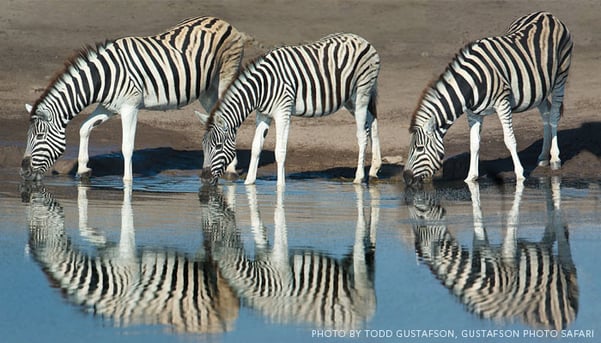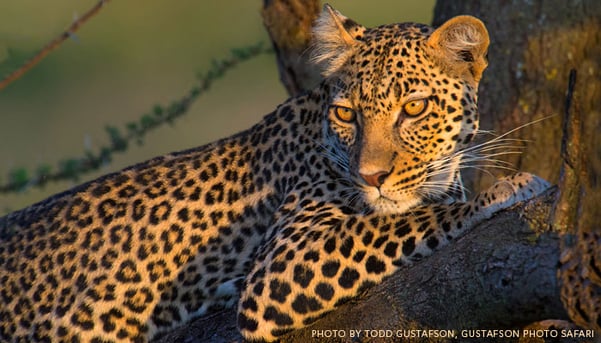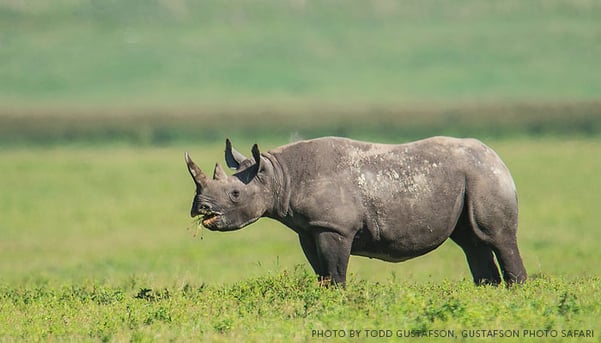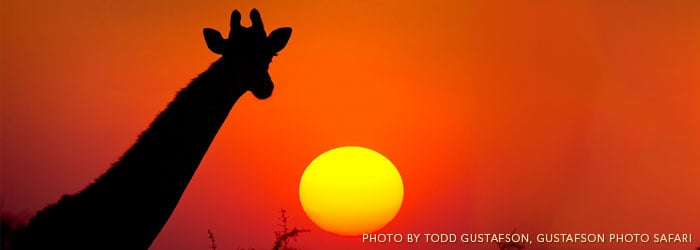On Safari: Taking the Mystery out of Planning an Africa Expedition
For many, the continent of Africa looms as a beckoning but intimidating travel destination. Originally stemming from antiquated misperceptions of the 19th century, this modern lack of even general Africa knowledge can sometimes pose a challenge to – and even deter – a potential traveler organizing the group safari on their bucket list. So, to help take the mystery out of planning an Africa expedition, here are three important areas to focus on, and ways you can maximize your success during the planning stages and in the field.

Selecting your safari program
Like any other destination, a huge component of your trip’s success is in the selection of your safari itinerary. Your group may be interested in wildlife photography, birding, gardens, natural history, cultural interaction, or some combination thereof – and popular safari destinations like Tanzania, South Africa, Namibia, Botswana, and Kenya can all support that range of interests. Each country has national parks, game reserves, and/or conservation areas that all provide wildlife viewing, plus additional offerings outside that specific interest. Choosing a destination depends on your preference.
“Typically everybody’s safari is great because it’s their safari,” says Todd Gustafson, founder of Gustafson Photo Safari and experienced safari leader of 20 years. “It’s the safari they chose, and with that in mind, they were successful. Within that success, there’s a lot of improvement that’s possible that people just simply don’t know.”
So what are some finer points that go overlooked? Since the core component of safari is wildlife viewing, it’s important to know the logistics of the park or reserve you’re looking to visit. What is your access to the animals, and what’s your freedom to move around? Whether you choose a national park or a private game reserve, it’s essential to know their rules regarding operating hours (maybe you’d like to go on a night drive) and off-road access (in case you want to get closer to the animals). You’ll also want to be aware of typical daily traffic, to ensure that your experience has the right amount of “crowd” for your preference.
Pace and rigor are also factors to consider. “Since travel to any country in Africa is a long journey, the attention to the physical condition of the participants is critical and the initial days should be matched to that reality,” shares Dr. Marilyn Lisowski, a professor of Environmental Education at Eastern Illinois University. She has explored more than eight African countries in her experiences as a travel planner.
Gustafson echoes the importance of comfort zone when you’re considering different options for your safari program. “How adventurous are you? How open to new experiences are you? People have different flexibilities with their travel habits,” he notes. Not only is this a helpful reflection in deciding your own goals, but it also extends to your audience – the participants who are going to join the expedition.

Choosing a safari operator
Of course, part of the success of a safari program is in the hands of the travel operator you choose to work with. It can be tricky to decide if you want to work with a Western-style operator, who will cater specifically to the preferences of an American audience, or with an African operator that might provide more authenticity, but might also be outside some traveler’s comfort zones. If your group is interested in local interaction, finding an operator with established community connections is a priority.
As responsible travel is vital for nature conservation, please consider prioritizing operators that have an expressed commitment to ecotourism. Some operators offer carbon offset for their travelers; others plant native trees to help reforest wilderness areas in their destinations. Responsible travel also encompasses cultural and community preservation, and a minimized traveler footprint in local areas. You can learn more about different ecotourism initiatives in African destinations at The International Ecotourism Society’s “ecodestinations” page.
Like with any program, the local guide is a huge factor in your trip’s success – especially for your participants. “What emerged as the best component voiced by many was having a congenial and knowledgeable local leader,” Lisowski says. So when researching an operator, it’s important to learn about their guides: how many years of experience do they have? Which parks do they go to? What is their expertise, and is it aligned with your interests?
Gustafson adds that transportation is essential, because your entire safari experience depends on the reliability and comfort of your vehicle. “You have to look and see how many vehicles an operator has, and how many years they’ve been in operation,” he advises. “If you get out there and you’re in a vehicle that is older, you could have some safety issues.”
Ultimately, the internet is a valuable resource for researching your destination and possible safari operators, but it also presents a challenge when it comes to verifying the legitimacy of a company. By asking thorough and detailed questions, you’ll be better able to get an understanding of an operator’s professionalism, amenities, and preparedness.

Working with your participants
Once you have picked your priorities, chosen an operator, and selected your itinerary, your attention turns to your participants – from initial sign-up until your “welcome home.” If you are traveling with your participants, your role as leader runs parallel to the local guide – your knowledge, adaptability, and enthusiasm in the field will be valued by those traveling with you. There are even little ways to communicate your positive attention, like limiting the number of people in safari vehicles so people have their own space, and grouping people with similar interests and priorities – including driver guides.
Gustafson emphasizes the importance of a leader’s presence: “I’m involved every minute of every safari. If there are issues that need to be fixed, I’m there to fix them, whether it’s a safety issue, a comfort issue, or a wildlife or cultural issue.” Ultimately, whether you’re a planner “back home” or a group leader in the field, your consideration and accommodation of the participants and their safari experience is vital to the overall success of the program.
Todd Gustafson is currently in production on the public television documentary “To the Ends of the Earth,” about conservation-minded safari photography in East Africa. Visit his website for information about upcoming tours.
HOLBROOK TRAVEL PROGRAMS
South Africa
NATURAL HISTORY The Jewels of Southern Africa
BIRDING Birding and Wildlife Safari
GARDENS Public and Private Gardens, Wine, Culture, History, and Nature
Tanzania
ADVENTURE Tanzania Up Close: Culture, Safari and the Great Migration
CULTURE Investigating Biodiversity & Human Civilization
BIRDING Birding in East Africa
INDEPENDENT JOURNEY Classic Safari
Kenya
INDEPENDENT JOURNEY Classic Safari
Namibia
NATURAL HISTORY The Wild Namibia: Exploring the Natural Wonders


